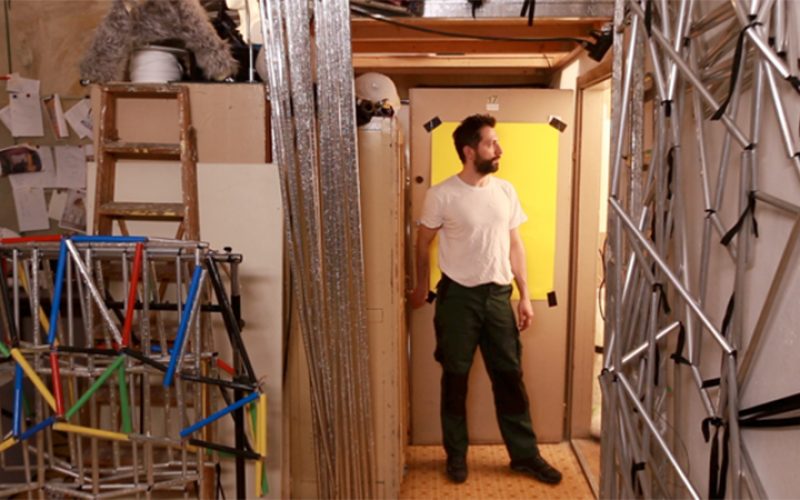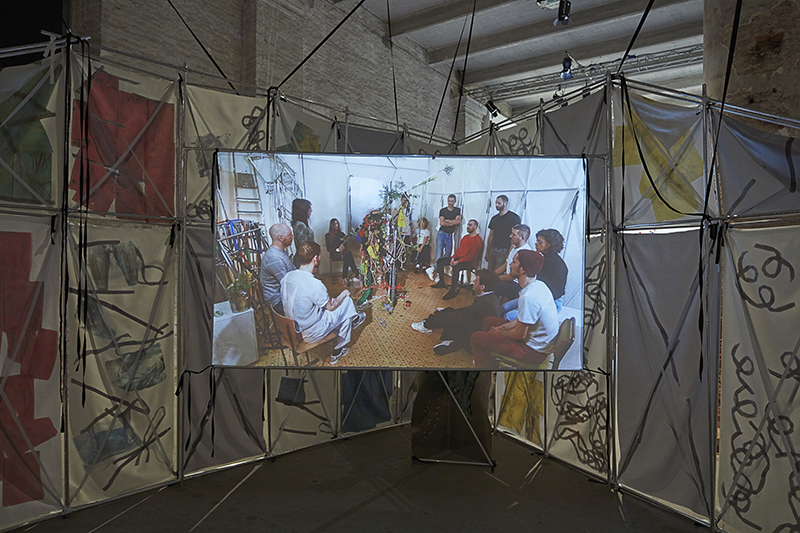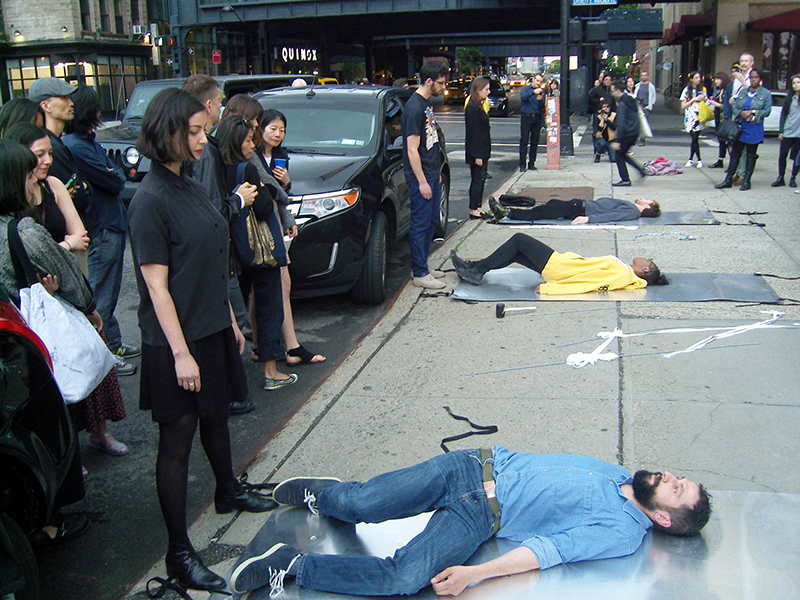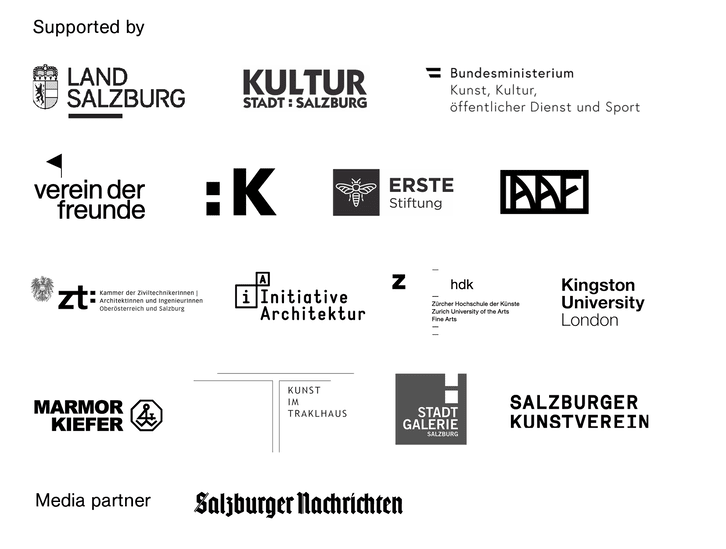| Shop |
- Academy
- Studies
- Courses
- – Courses 2024
- – All courses
- – Painting
- – Drawing
- – Printmaking
- – Photography / Film / Video
- – Sculpture
- – Installation
- – Performance
- – Architecture
- – Art Critique / Writing
- – Curating
- – Course archive 2023
- – Course archive 2022
- – Course archive 2021
- – Course archive 2020
- – Course archive 2019
- – Course archive 2018
- – Courses until 2017
- Events
- Blog/Videos
- Press

A short interview with… Yorgos Sapountzis
Summeracademy: How important is performance in your work? What is your preferred material and why?
Yorgos Sapountzis: I worked in the theater for years. From the age of 20 to 25 I was a stage designer and assistant directtor for a theater group in Athens. Even today I’m fascinated by that moment of selfabandonment that’s always there when some one exposes themselves before an audience and starts playing a role. This moment is so important because it’s precisely this we need to learn: the ability to feel through and with others. This is why, as far as my own work is concerned, I only call those works performances where I have an audience. And because this special element of feeling through others can only take place given human presence, I hardly ever turn such performances into video works after the event.

Yorgos Sapountzis, Sculptures cannot eat, various materials, music: Oyvind Torvund, 2017. Courtesy the artist and Barbara Gross Galerie and Eleni Koroneou Gallery, photo: Nick Ash
There’s one idea underlying all of my performances: “Here I am! I’m here for you now!” Time plays a role, the audience’s gaze, and their empathy with me, the performer. You can’t translate that into videos. Each time I have to overcome my fear of presenting myself to people again.

Yorgos Sapountzis, Performance, The Kitchen, NY, 2014
So there I stand with my materials, and with their aid I try to construct a story or an experience. Basically, everything that I do as an artist is born of this element of performance. Experiences during a performance are so strong that they often eclipse everything else in my memory. My memories of my performances point the way to my other works.
- 11 April 2018
Authors
- Adelaide D' Esposito
- Albatross on the fortress
- Benedikt Breinbauer
- Chloe Stead
- Collaborative lecture performance
- Everything you always wanted to know about curating
- Gaia Tovaglia
- Hildegund Amanshauser
- Hili Perlson
- Karin Buchauer
- Montage my beautiful trouble
- Nina Prader
- Olamiju Fajemisin
- Processing our days
- Recently deleted
- Summer Academy
- Tex Rubinowitz
- Writing in on and through art
List by
Internationale
Sommerakademie
für bildende Kunst
Salzburg
T +43 662 842113
| Follow us: Newsletter TikTok YouTube |
| © 2023 / Imprint / Privacy Policy |
